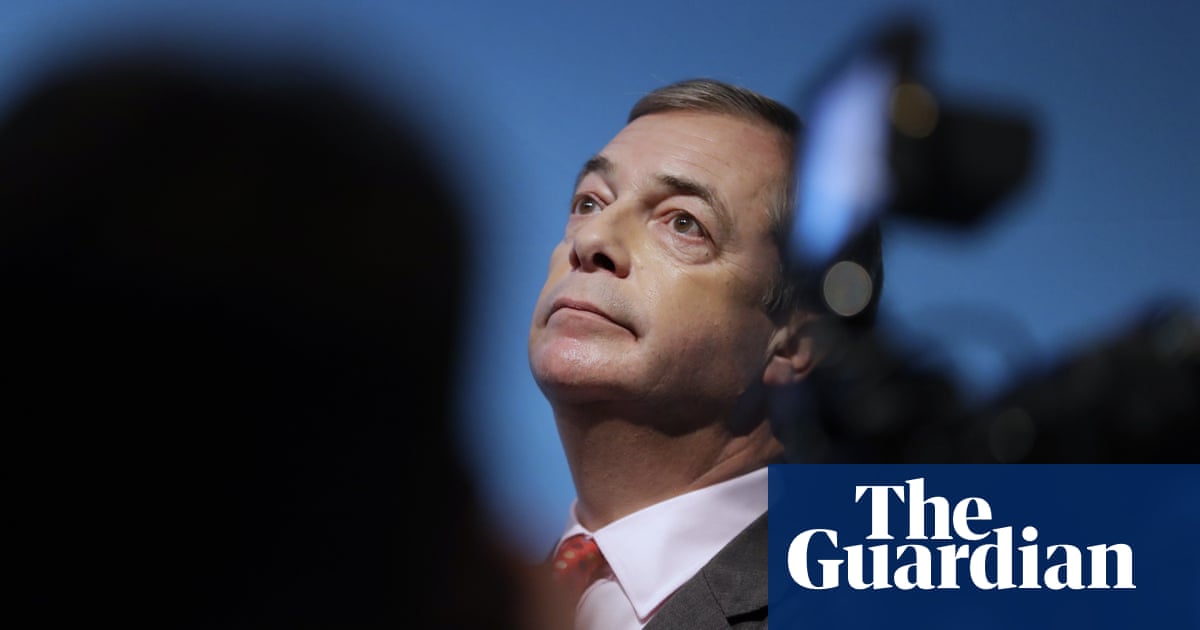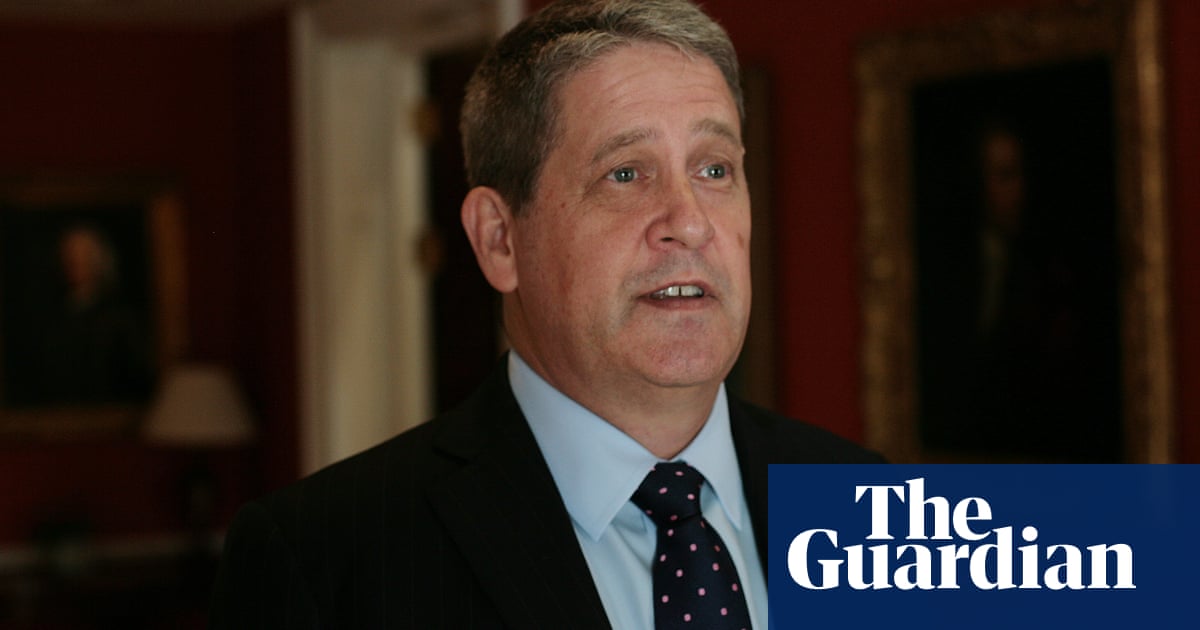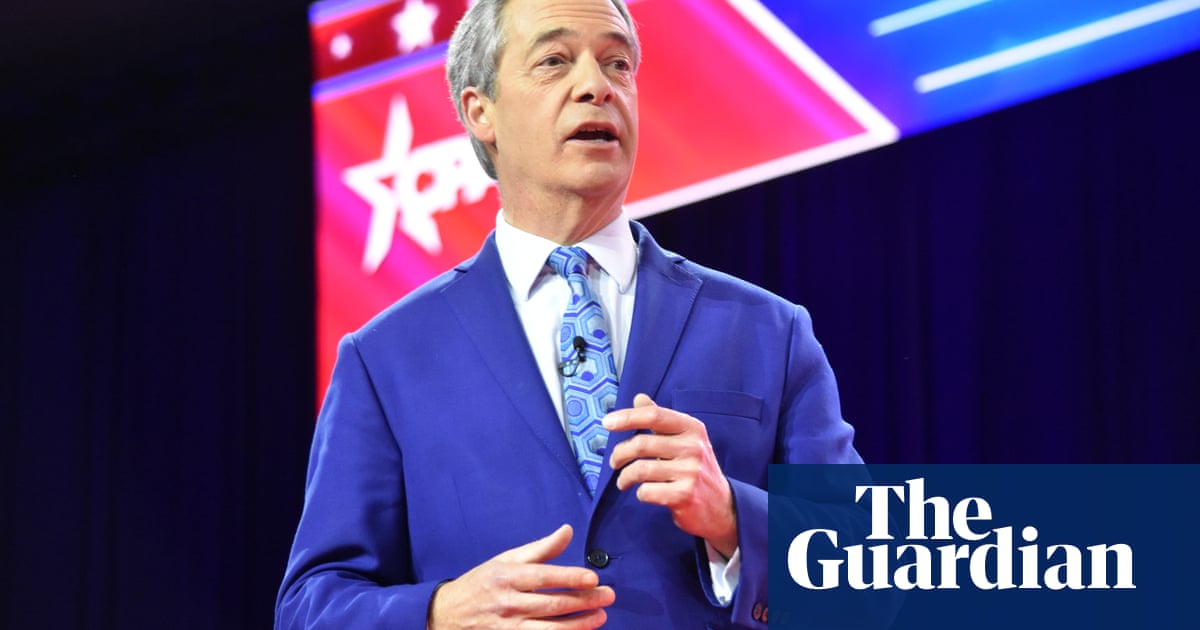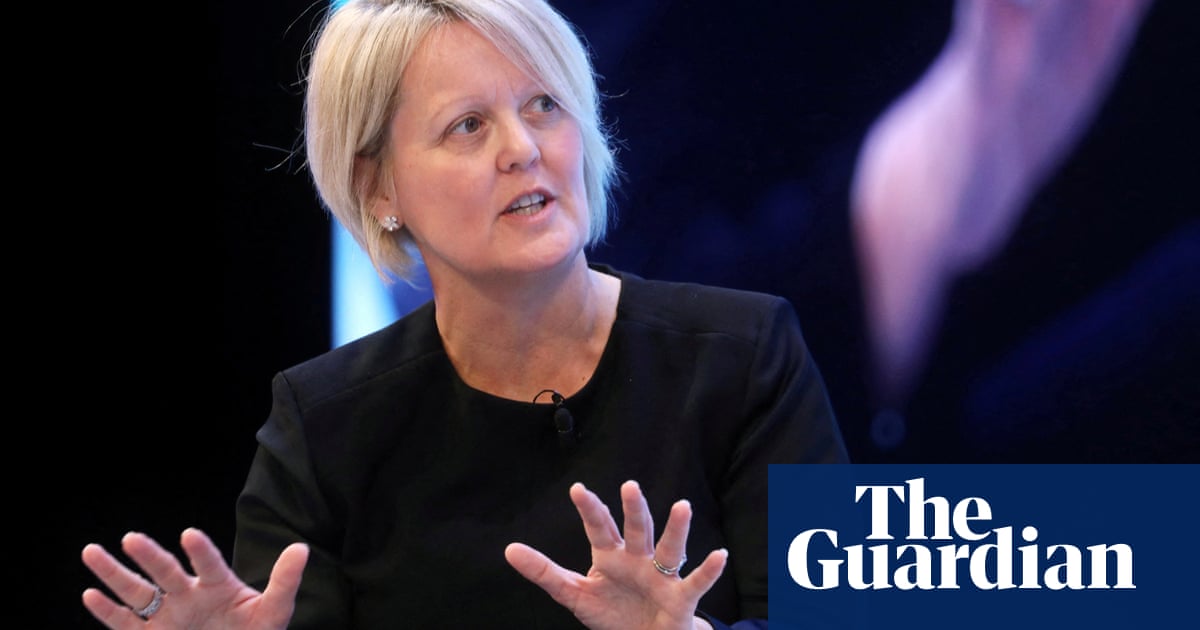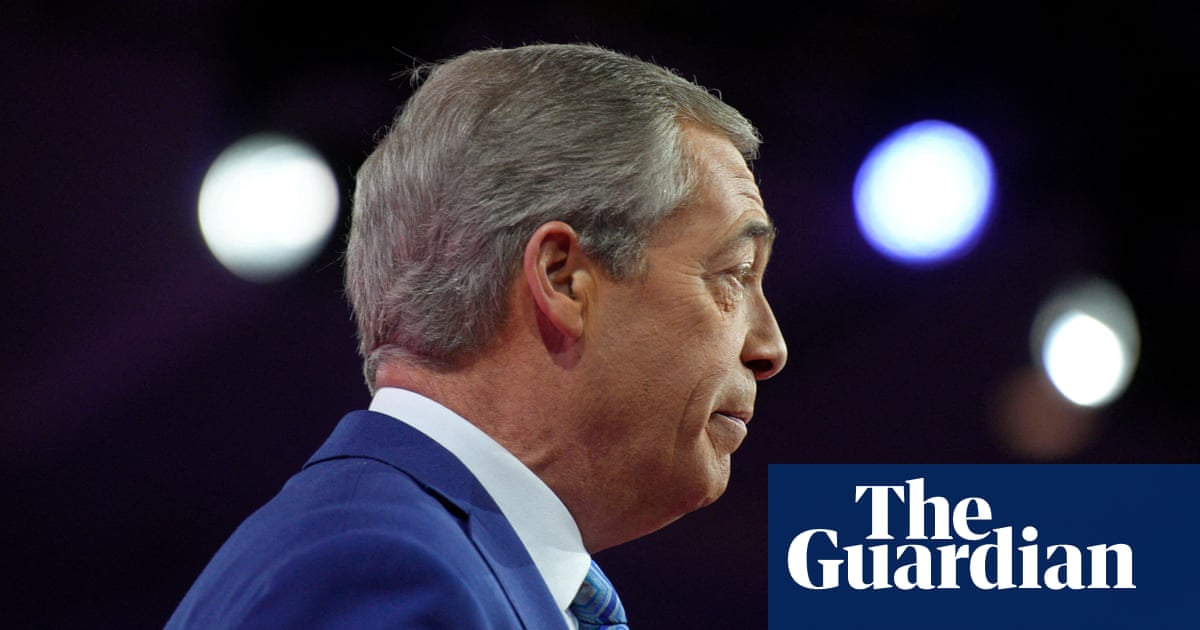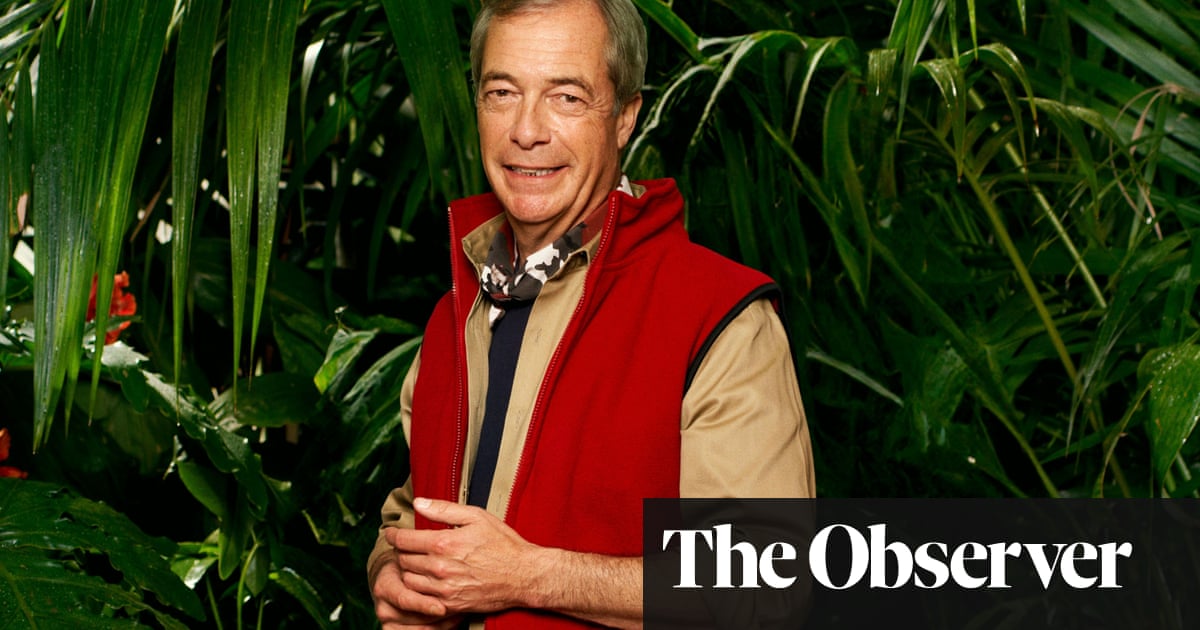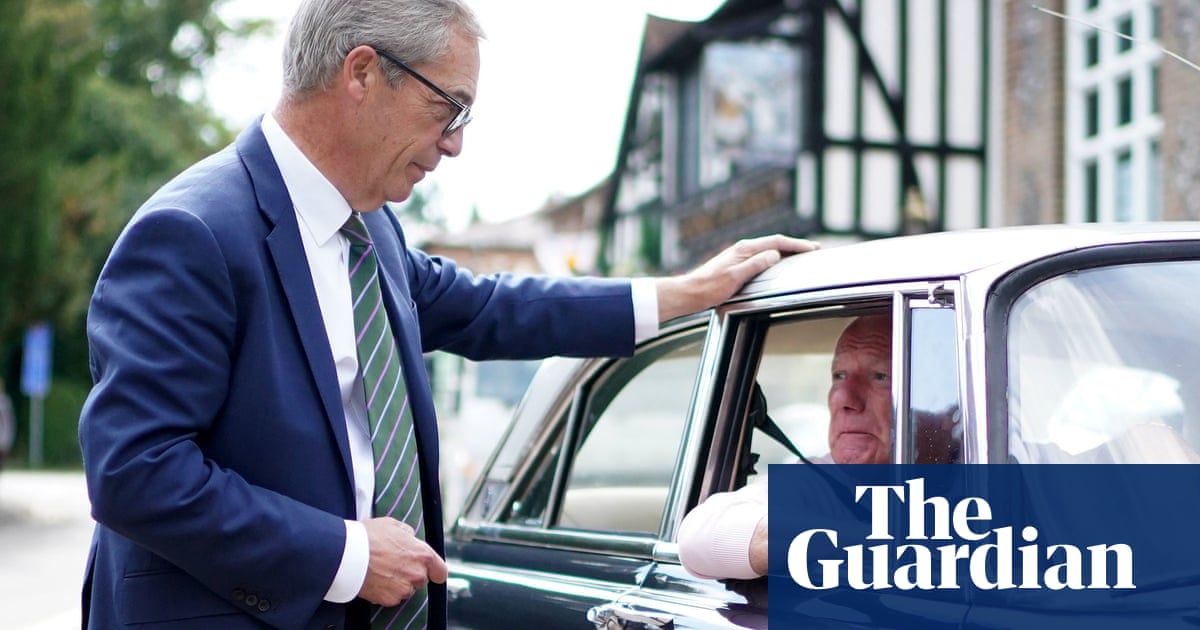
Nigel Farage is used to being thanked by true believers in Brexit, but the man who came to grasp his hand as he sat down for dinner in London’s Belgravia on Tuesday night was a surprise.
“It was a chap who just said ‘Nigel, I’m a remainer, but please, stand up for us’. He was an Italian businessman in London who was having terrible trouble receiving foreign payments because banks thought he was a money launderer,” the former Ukip leader said.
Hours later, the departure of Dame Alison Rose as NatWest’s chief executive over her role in the Farage “debanking” controversy would give the politician turned broadcaster one of his greatest coups since Brexit.
It has also lifted him from the relative obscurity of his last reinvention, as the star anchor of GB News. Just like old times – when he was a near-omnipresent fixture across all channels – he has suddenly found himself back in the limelight with a soapbox issue that has ministers and the rightwing press following in his wake.
He is now launching a website to collect details of tens of thousands of people he expects will back his campaign against a banking system he claims is “rotten to the core”. While he says it will be “non-political, non-party”, the future political potential of such a database is obvious.
After some years out of the limelight, there are signs Farage views himself as hard done by and still underestimated by the political establishment.
During an interview on BBC Radio 4’s Today programme, he snapped when the presenter Nick Robinson asked him about his potential desire for a political comeback, and boasted of his parties’ triumphs in two European elections. “I am sick to death of your condescending tone … What you should say to people is, ‘You’re the only person in British history who has won two national elections leading two different parties’,” Farage said.
Asked by the Guardian how he viewed the moment he finds himself in, more than five years since Brexit, he said: “I think I happened to have a position on a major constitutional issue. There was a tiny minority position, which I helped turn into a majority position. But, you know, it was 52/48 and a lot of people did not like me for doing it. I also think that I suffered, honestly, some unfair press.
“I think some of the race stuff that was said did poison people’s minds,” he added, in an apparent reference to accusations that he had incited racial hatred with an anti-migrant poster unveiled during the EU referendum campaign.
“But I am now absolutely committed to being a champion for the voiceless out there. If we can all join hands I would be delighted.”
In comparison with Brexit, Farage’s latest crusade on debanking is less polarising- than some of the other campaigns he has launched in recent years with varying degrees of success. There was the beginning of a focus on small boat crossings in 2020, with Farage trudging Kent’s shingle shores or taking to a boat to film pieces to camera months before he joined GB News.
With the arrival of Covid-19, there was early opposition from Farage to the apparent initial UK strategy of “herd immunity” before he switched to an ardent opponent of lockdowns. Last year, he attempted to press for a campaign on net zero, but Bolton Wanderers football club cancelled his plan to use its stadium for a rally.
His latest campaign, launched on 30 June in a tweeted video that claimed his accounts with a “prestigious” bank had been closed without explanation, was different. The details were sparingly teased out in tweets and videos before NatWest-owned Coutts was confirmed as the bank in question.
By the time Farage revealed, via a subject access request, that Coutts had compiled a secret 40-page dossier accusing him of being a “disingenuous grifter” who promoted “xenophobic, chauvinistic and racist views”, it had turned into a monumental PR disaster for the bank.
Lloyd Russell-Moyle, a Labour MP who went on Farage’s GB News show on Wednesday night to talk about his own banking struggles as a “politically exposed person”, said: “He has tapped into something here which I think the liberal elite in my own party and in the media have misunderstood, and that is how the banks have treated some people appallingly and how they continue to operate.
“What Farage has done this time is take something that is a privileged, niche problem for him and then really build on it in terms of how the public are treated. It’s effective politics.”
Yet while Russell-Moyle does not view Farage’s banking campaign as a “culture war” issue, close watchers of Farage and various incarnations of Britain’s populist right and far right remain wary.
Joe Mulhall, the director of research at the anti-racism campaign group Hope Not Hate, said Farage had clearly been “looking round” since Brexit for a new issue, adding: “He hasn’t been this relevant for years.”
He added: “For a period he was the keeper of the Brexit flame but … its salience has dissipated so he has been looking for an alternative and seems to have found one that paradoxically makes him a crusader for the ‘working man’ and small businesses wronged by an elite.”
For Mulhall, it has been notable how Farage has dialled back on the language of a supposed “war on woke” as support for his tussle with NatWest has begun to win popular backing. Whether he pivots back to railing against banks “being more bothered about putting up rainbow flags” will be key.
Where this latest reinvention features in the career of a politician who has had made more comebacks than any of this generation remains to be seen. Though he remains listed as a director on Companies House, Farage stepped down in 2021 as leader of Reform UK, the renamed Brexit party, which has continued to be seen as a placeholder for him should be choose to officially re-enter the political arena.
But it has failed to make electoral inroads or attract substantial backing and, while involved, Farage has often remained at arms length. Instead, over recent weeks and months, it has been Conservative party MPs and ministers who have been his supporters.
Months before going public with his complaint about Coutts, he had reached out privately to the City minister, Andrew Griffith – Treasury sources say Farage was offered “guidance on avenues of redress” – who would later summon UK bank bosses to discuss the GB News presenter’s account closure.
Other prominent backers in recent weeks included Suella Braverman, who accused NatWest of “politically biased dogma”, and Jacob Rees-Mogg.
“This is also clearly about a powerful individual who is well-
connected to government, who has been able to lobby at the very highest levels,” said Clive Lewis, another Labour MP who agrees that a principle – access to banking – has been at stake.
“The notion that he is a washed-up post-Brexit political figure is wrong and he clearly sends the fear of God through Tory ministers.
“He’s also in many ways the soft underbelly of a very hard right which is on the march across Europe. It’s not hard to imagine him being a gateway to something much worse than we have in power in this country. Were the Conservatives to lose next year then they could morph into something else and Nigel Farage would undoubtedly be integral to that.”
As for his own answer to the question of making a political comeback – the cause of that flash of anger when asked by Robinson – Farage does not rule it out in one way.
“If we were to get a proportional system of some kind in Westminster politics, then the whole game would change,” he said.
Would he be tempted? “Whether it tempts me or not, I’m afraid I’d be forced into it whether I wanted to do it or not. I wouldn’t have any choice.”





